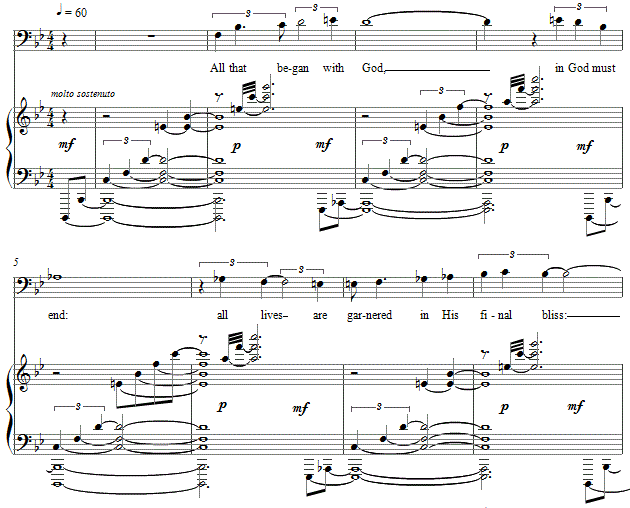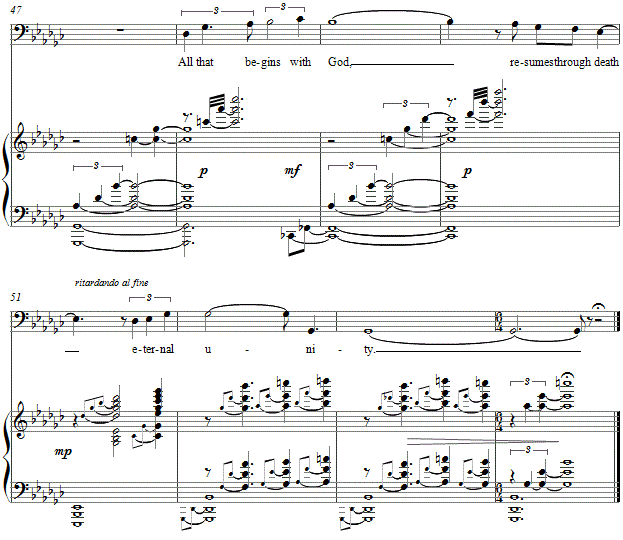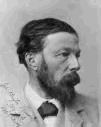Music and Texts of GARY BACHLUND Vocal Music | Piano | Organ | Chamber Music | Orchestral | Articles and Commentary | Poems and Stories | Miscellany | FAQs |
The Prism of Life - (2005)
John Addington Symonds
for bass or bass-baritone and piano
for John Cheek, bass
All that began with God, in God must end:
All lives are garnered in His final bliss:
All wills hereafter shall be one with His:
When in the sea we sought, our spirits blend.
Rays of pure light, which one frail prism may rend
Into conflicting colours, meet and kiss
With manifold attraction, yet still miss
Contentment, while their kindred hues contend.
Break but that three-edged glass:—inviolate
The sundered beams resume their primal state,
Weaving pure light in flawless harmony.
Thus decomposed, subject to love and strife,
God’s thought, made conscious through man’s mortal life,
Resumes through death the eternal unity.
Text as found in The Oxford Book of English Mystical Verse. 1917, Nicholson & Lee, eds.
[ 5 pages, circa 4'15" ]
John Addington Symonds
John Addington Symonds (1840–1893) was in the forefront of the "bourgeois radical" men and women with socialist ideals who were destined to reform public opinion in the 1890s. He was a dynamic member of a group of men concerned with art who worked towards a revival of culture, often in conjunction with politics: Ruskin, Pater, Rossetti, and Wilde. His specific contribution to the regeneration of society was as a pioneer in the field of gay rights; he was the first modern historian of homosexuality, and the first advocate of gay liberation in Britain. Though a writer and essayist, it was his poems which meant the most to him.
This setting is written for John Cheek, bass, who sang a fine König Marke in the Florentine Opera's 2004 production of Tristan und Isolde. His broad lined interpretation and refined dignity were a joy against which to play, and hearing him so often in rehearsal and performance gave me a fine vision of his voice in this setting, given with respect to such a fine artist and gentle man.

The opening gesture suggests the prism, rending into competing harmonic colors the whole of the phrase. After a long and lyric moderato in B-flat, a shift via a common tone modulation to G-flat offers a return to the lyric line and opening gesture transposed, yet in a large structural arc, as all that begins must end in a "unity." That which "resumes through death" holds no fear, but thankfully awe.

The score for The Prism of Life is available as a free PDF download, though any major commercial performance or recording of the work is prohibited without prior arrangement with the composer. Click on the graphic below for this piano-vocal score.
